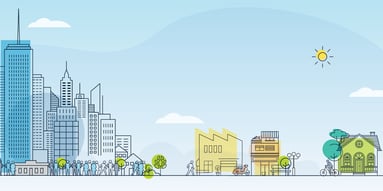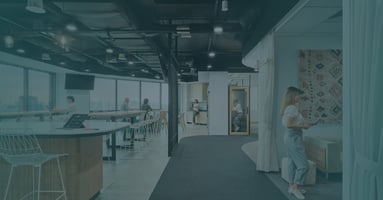
The global impact of a remote workforce & workplace
Across the globe our professional and personal lives have been permanently affected by the COVID-19 pandemic. As restrictions begin to ease, our news feeds, inboxes, and conversations have been overtaken by the buzzword “new normal”. What will be the new normal for the workforce that has been remote working for the last 10 weeks? – will they be commuting to the office or to the kitchen table? At Unispace, we too have been dialoguing, white-boarding, and ideating about the future of the workplace, however to us it’s not this overused “new normal”, its what’s next, what is the next normal?
To help find this out, we conducted a survey of our global clients and got feedback from over 250 global companies on the impact of remote working and what the workplace future holds for these organisations. The survey results shed light on what workplaces of the future will look like and emerging cultural and behavioural trends to be taken into consideration for future office design:
Productivity
Interestingly, 45% of respondents have found themselves more productive while working remotely while 36% have found it more difficult to maintain productivity as a result of ineffective setups and care-giving requirements. On top of this, 37% have witnessed a decrease in productivity due to the increased need to communicate more regularly with colleagues.
Internal/external challenges
The primary challenges from both an internal (63%) and external (55%) standpoint has been around connecting with peers and clients. Participants in the survey have seen challenges arising when talking to external parties with 42.7% of respondents indicating some frustration with a mismatch of software and being unfamiliar with their client’s tools, which may have been better solved in a face-to-face office environment.
Returning to the workplace
In what could have a seismic implication to real estate portfolios, respondents believe the overall office footprint will shrink and staff will work from home at least 2-3 days per week (68%).
To work through these findings, we hosted a live session - Collective RE:working – remote working and the future of the workplace, where our panel of experts discuss the next normal, reviewing these survey results and breaking down the implications of remote working on engagement, productivity, and the future of the office footprint. This research has informed our thinking as a company around what we feel may become the new paradigm in office typology.
We believe, even as behaviours and mindsets continue to evolve, the context of the workplace is here to stay. In the next normal, the value of the office in the future lies with collaboration, problem solving, and social needs, functioning as an idea and revenue generator while our home office provides us with the opportunity to focus and learn.
While this new reality has been challenging and has forced many outside of their comfort zone, if we are to find success in the return to the physical office we will need to evolve and adjust to the ‘next normal’, absorbing what we have learned during this crisis.



